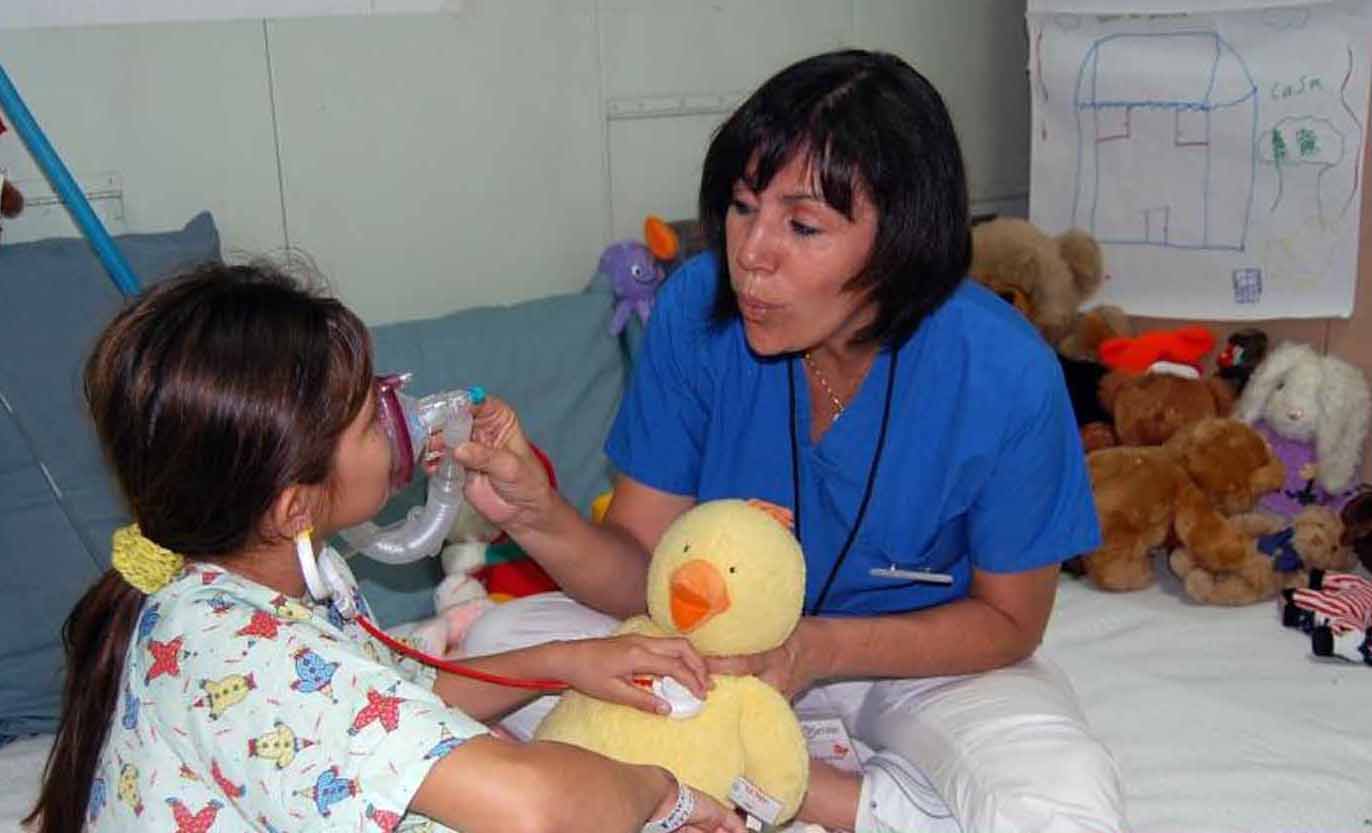 |
| Child life specialist. |
Now, let's talk about MDs, DOs, PAs, and RNs. A person with one of these degrees can choose from a wide variety of practices at the completion of their degree. For instance, MDs and DOs ("doctors" or "physicians") can become primary care doctors (for children, adults, or both), specialists (in a particular time of life, like geriatricians or obstetricians; or for a particular organ system, like cardiologists and endocrinologists; or for a particular disease, like oncologists). PAs ("physician assistants") can do almost anything doctors do, from surgery to private practice. RNs ("nurses") work in all kinds of settings as well, especially inpatient settings like nursing homes, adult/pediatric/obstetric hospitals, surgical settings, ICUs, PACUs, NICUs.... Some RNs work call centers, which is a good option for those who want to work from home and have a family. RNs can also become nurse practitioners (NPs), which enables them to take on the responsibilities of a clinician.
Let's clarify the word "clinician." A clinician is a person who physically examines patients, diagnoses their conditions, and prescribes a treatment plan. Unlike a technician who may perform specific tests (like measuring blood pressure, taking an X-ray, measuring an ABI, or performing an ultrasound), a clinician is responsible for combining the results of tests with findings from his physical exam to create a plan of care and manage that plan. Doctors, PAs, and NPs can all do this. PAs and NPs (sometimes called "mid-levels") require a physician's supervision, but this is very loose when the relationship is established and the mid-level's experience is solid.
Our healthcare system is changing, and the rise of mid-levels is a sign of this change. A mid-level can do now what a doctor did in the early last century; a doctor now has a different set of unique privileges. So why become a physician when you can examine, diagnose, prescribe, and manage patients as a PA or NP? What's unique about becoming a physician?
A physician (MD or DO) is, in addition to being a clinician, a supervisor of clinicians. In addition, he can be an entrepreneur (e.g. starting a practice, group, clinic, or even hospital) with greater ease and independence than a mid-level or other healthcare worker. Moreover, he can be an innovator: his depth of education (somewhere between the mid-level and a Ph.D. in several subjects) allows him to design new therapies for patients and legally try them. Finally, he can subspecialize or superspecialize: as an example, I could become an OB/GYN and then do a fellowship in maternal-fetal medicine or a fellowship in naprotechnology. If I start a clinic I can employ other physicians or mid-levels who practice general OB or general GYN, while I care for high-risk women or complicated surgical cases. In conclusion: in our day and age, the MD or DO is the highest degree in medical careers enables a person to be a supervisor, entrepreneur, innovator, and subspecialist. If you don't want to be one or more of these things, I suggest going mid-level: you'll still have your patients, you'll still diagnose and manage, but you won't have as many years of school, nor as much debt and liability!
I hope this is a helpful tool for anyone considering a medical career. I see that some of my classmates have the wrong reasons for becoming a physician, and others are fatigued by the amount of school. I don't want this to happen to you (or the person you think could read this and find it helpful), so I encourage you to think and pray about this carefully. Finally, thank you for considering a medical career: it's a corporal work of mercy and an extremely fulfilling path. Whatever you choose to do, I hope you enjoy it!

I like your blog a lot. Its informative and full of information. Thank you for sharing.
ReplyDelete